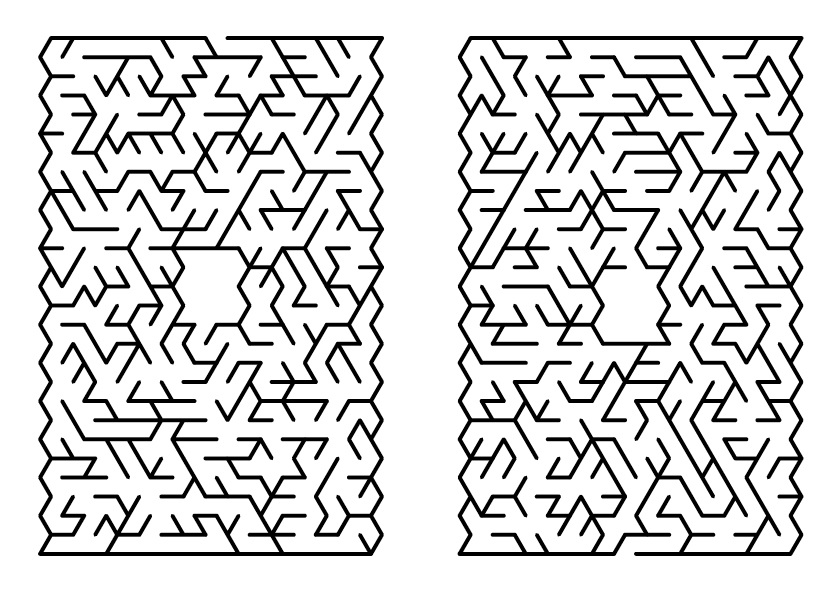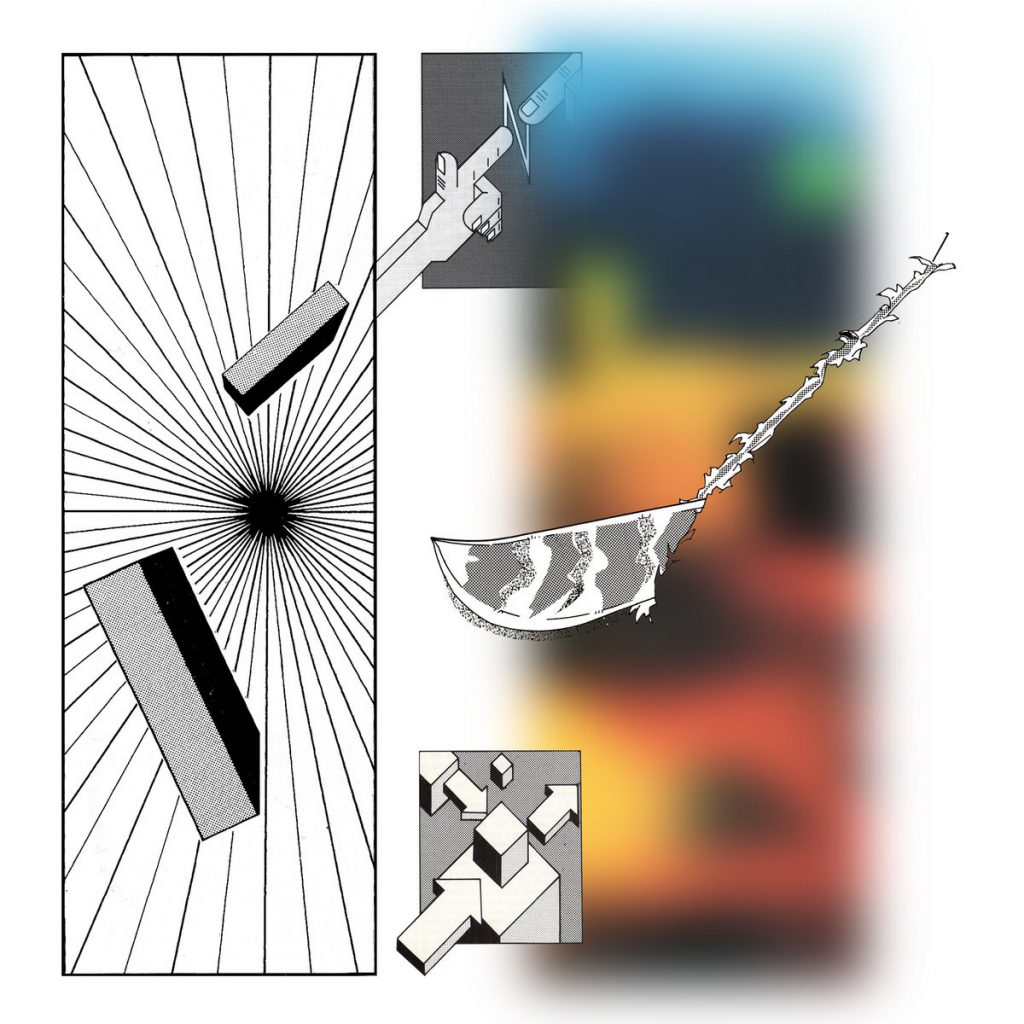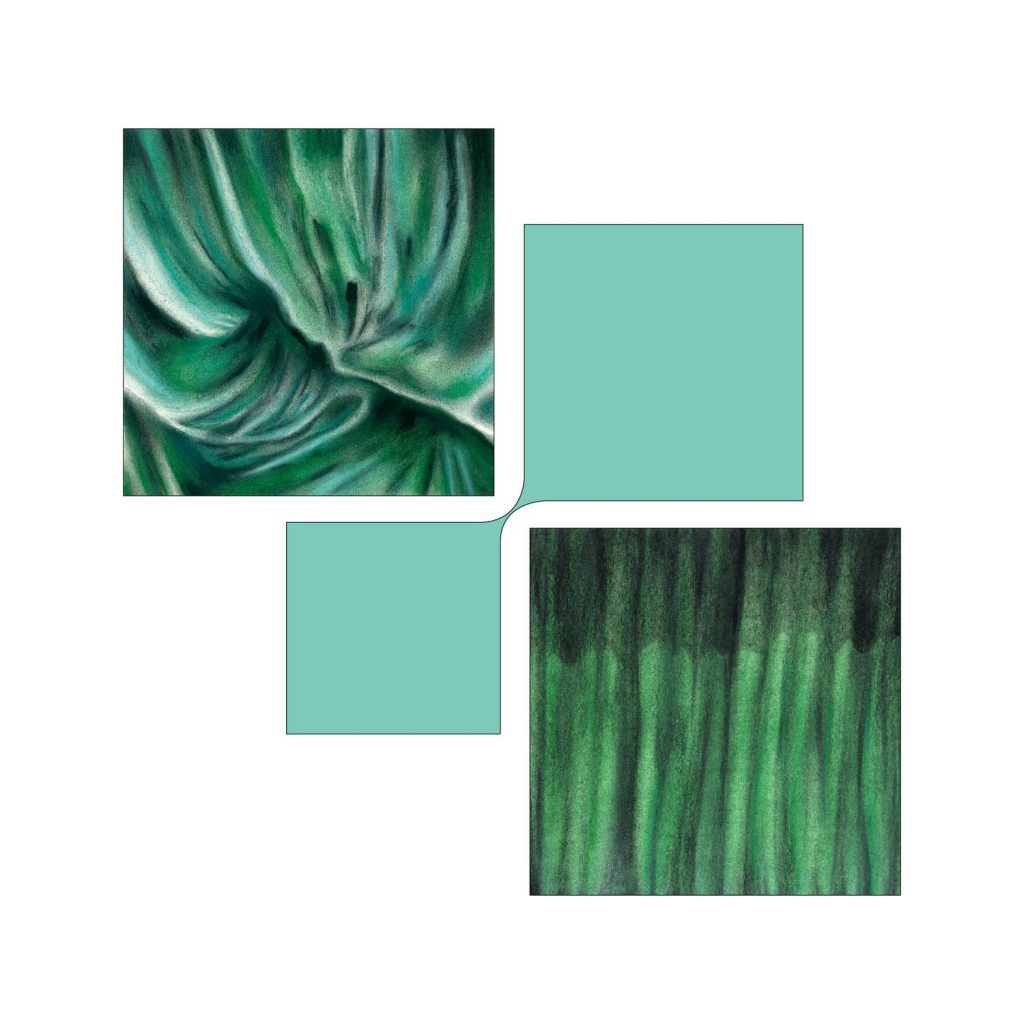Interview by Allan Gardner

Gang of Ducks is a multidisciplinary group established in 2013 in Turin. Although they most often engage in work through audio, the group’s output includes visual art, zines, vinyl releases and a number of digital projects.
Currently based out of Turin, the Gang’s myriad of creative activities can exist free from the pressure put on artists and musicians in larger cities or those with a more significant international profile. Browsing their releases, you’ll find an eclectic mix of styles and production methods – as well as a visible and significant adherence to the consideration of electronic music as a conceptual framework for exploration or research. This way of working allows for an organic, fluid evolution in terms of the creative output and the artists and projects they engage with.
Their description of working from Turin reminds me of the stickers you see around Berlin – “support your local Antifa, don’t move here” – for anyone engaged in cultural production outside of their nation’s capital (myself included), this willingness to build from outside that position has a profound effect on the way output manifests. Looking inward, seeing creativity and talent within your periphery and seeking to uplift and nurture it is at the core of the process and the output of Gang of Ducks.
The group treat visual, audio and written work equally, considering their outcome as an attempt to create harmony between these aspects of a project to push its conceptual drive forward. Much of GoD’s output concerns symbols, a contradiction in and reinterpretation of symbols.
Contemporary society necessitates a degree of semiotic literacy, an interpretive standard by which to analyse and understand the information we’re confronted with daily. Reconsidering, restructuring, and ultimately reimagining this semiotic language lies at the core of their output, from the visual identities of their record releases through to publishing projects – both digital and physical.
I feel like discussing the relationship between our digital and physical lives has been omnipresent in art and dance music for more than a decade, a conversation mired in the idea that our digital existence is beyond our control, the increasingly complex relationship between the Internet and its user at the core of it. Gang of Ducks address the subject but does so in a way that allows an almost complete bypassing of the tropes. Allowing their work to reflect a utopian future whilst accepting the dreamlike nature of said utopia indicates GoD’s playful nature and approach to art in its broadest sense.
If you’re hearing about the label for the first time, Bandcamp is an easy place to get lost for a few hours. I’d recommend starting with Camarades Breton (S/T); the record functions as a meditative exercise in the relationship between opposing forces, providing the listener with space through repetition and the opportunity to consider composition as a metaphor for conflict.


For our audience unfamiliar with your work, who is behind Gang of Ducks?
A: We started the Gang Of Ducks project as a big family, trying to keep it open and letting many people in. In time the operating circle has narrowed down, and at the moment, we are 3 people at the helm, though still keeping our definition of an open circuit and often working with collaborators and friends.
S: Yes, now the core team is made of me, releasing under the Sabla moniker Alessio, who has recently done a record with Anna Homler and also has released as XIII, and Francesco, releasing as Oddgrad. Besides the music output, the label also operates in the fields of visual projects, performance and more.
Gang of Ducks started in 2013; what were the main ideas and aims for the inception of the project and the ethos behind it? And have these kept the same throughout the years, or is it something that has been evolving?
A: In 2013, when we started, we were driven by research on primitive languages and the combination of rituals with the club and urban cultures. We were younger, and what we did was more confused and nebulous; now we are more aware of what we do, and we have started to develop more deeply our connections with matter, nature and the practices behind the “aggregation of people in the same place”, whether it’s clubs, urban spaces or open spaces outside the city. We’re also developing discourses related to the concept of escape and hermitage and the internal ‘aggregation’ with your spiritual vision.
F: We wanted to create a playground where we could do something we liked, bringing in our personal paths to give life to something different from what we were doing, a new creature made of our experiences. The core concept has always been exploration, both in music and in visual culture, an exploration which, by its very nature, has continued to evolve and continues to do so. It couldn’t be. Otherwise, things around us change, and we change with them, and very naturally, Gang of Ducks too.
What have been (or maybe are) the main challenges of running the labels?
A: Running a label is always adventurous. Respecting the label’s ethos, meeting deadlines, maintaining relationships with the distribution and taking the time for parallel projects is a great challenges. Still, after a few years, you begin to get carried away, and everything flows more fluidly.
S: One challenge for me is running it from Torino. It’s a city which is very open to explorations, but it’s not a big international hub, so this doesn’t help in terms of connections. Still, it’s a big plus in terms of developing a unique voice, as external outputs influence you less. Also, recently we’re working more with friends and musicians from here, stimulating and helping them to release their music and helping them to grow their profile. I think this is great because we feel we’re giving back something to the city.
F: I think the main challenge has always been time, dealing with the label’s schedule, both internally and externally. Running a label that is not only a label requires so much time, and we are constantly trying to balance this aspect. Sometimes challenges emerge along the path; some are inspirational, while others are a pain in the ass.
Regarding the musical side of the project, what direction would you like to see it taking?
S: Sometimes, we feel Gang of Ducks is an entity with its own life, which happens to take an unexpected turn even for us. It’s as if we’ve put some guidelines, and then it goes and lives on its own. We’ve recently met to change these guidelines a bit for the future, so let’s see where this will take us.
A: We’ve released some music that seems extremely direct to us, but we’ve also realised that sometimes some messages we wanted to pass along didn’t quite break the wall. We are taking care of the emotional side related to the expression of making music; we want this to be clearly noted in future releases
I don’t think that art plays a role in describing, as describing would give a viewpoint, and we would have to ask how that viewpoint was constructed and how it emerged. I would say that art plays a role in exploring, from an interdisciplinary practice, the complexity of contemporary society. It creates associations, research, predictions, fiction and even possibilities of what it means to inhabit the world in particular conditions. Not one world but many worlds.
How do you position the label in the current experimental/dance scene?
A: Experimenting has always been part of our approach in music and art; it’s an unconscious approach. We wouldn’t know how to do it any other way. The experimental / dance scene is quite varied and changes a lot depending on the geo-cultural context. Italy, where we operate, is to be considered slightly on the margins, which is absolutely stimulating and allows us to carve out a greater margin for action.
S: I think all the recent circumstances, with the disappearance of events and social gatherings, have greatly changed the cards on the table. I think now it’s harder than ever to draw a galaxy of this scene, as it is mostly decentralised and online. With the explosion of Bandcamp, I’m discovering more and more great labels and artists that have little to no space on the standard distribution channels, widening and blurring up every border.
The visual part is also quite prominent; could you tell us more about how this is envisioned?
S: Our aim has always been to create a cohesive experience where visuals and music have the same importance. The first application of this concept was developing a language of symbols for our first releases’ covers. Then, as we felt that this was somehow overwhelming the identity of each different release, we started with a new approach. We now design the covers with a different idea for each of them, focusing more on the release concept than having a coherent vision with the other releases.
So far, we’ve mostly designed everything by ourselves. Still, we’ve decided that we also want to collaborate with other artists and illustrators with different skills and points of view to add more layers and tridimensionality to the imagination.
A: Usually, the visual part is a mix of our daily experiences that we try to bring to life within the platform. For example, the “Mem” video clip for the “Vasi Comunicanti” release comprises footage taken in the mountains and woods in the valleys above Piedmont and processed through typical effects found in trap and pop video clips. In the video, these visuals bring out a vibe and meaning that fits perfectly into our aesthetic symbolism.
What are your visuals interests, and how is this reflected in the label?
S: We take a lot of inspiration from symbolism. Primitive drawings, big corporate logos and religions all represent something immediate and strong that can then be filled with different ideas and concepts. We also take a lot of inspiration from the idiosyncrasy of society, like all the living contradictions and the strident contrasts.
A: Also, imagining possible scenarios and models for utopian societies are a strong inspiration, a sort of escape from everyday reality
Also, what about the writing side of the project? You publish zine art essays; could you tell us a bit more about what you are currently working on?
S: Yes, we have two different projects going on, SN50 and Chronicles. Sn50 is a series of zines curated by different personalities. For this project, we select people that are somehow linked to the label side and who are both in the music and the art/performative field. So far, we had issues curated by Nico Vascellari (Ninos du Brasil), Ruben Patino (N.M.O.), Roc Jiménez de Cisneros (EVOL) and Anna Homler.
It’s great that every issue is completely different but somehow connected through an indefinable quirkiness. The other project is Chronicles, which is a digital project in pdf format on Google Drive.
F: Again, we select people that are somehow connected with us but not necessarily related to music or a specific field of art. Here, the curator of a single Chronicle can choose a topic to develop visually or through text. You can see some essays, some poetry, and some visual research if you look throughout the archive. This is the main concept of the project, a place where stories can be narrated without impositions.
In the year of complete digital and screen overload, how do you cope with it?
S: When everything happens online, you start questioning the city’s role; why living in a polluted concrete town when you can live outside in nature with a laptop? Spending time walking outdoors is the real deal when you feel overwhelmed by all the digital inputs.
A: This overload you talk about is absolutely present. I think it will only increase; you have to learn to control it, and a reunion with the primordial part of ourselves helps considerably. We are not particularly affected as a label by this ultra-digital world; sometimes, we surf it, and sometimes we don’t. Perhaps when it comes to social networks and the touch-screen addiction world, we are a bit torn. On the one hand, we would like to be more present; on the other, it’s a cage from which to stay away.
What’s coming next in 2021 for Gang of Ducks, and where would you like to see taking the project into?
Deep in the swam.






